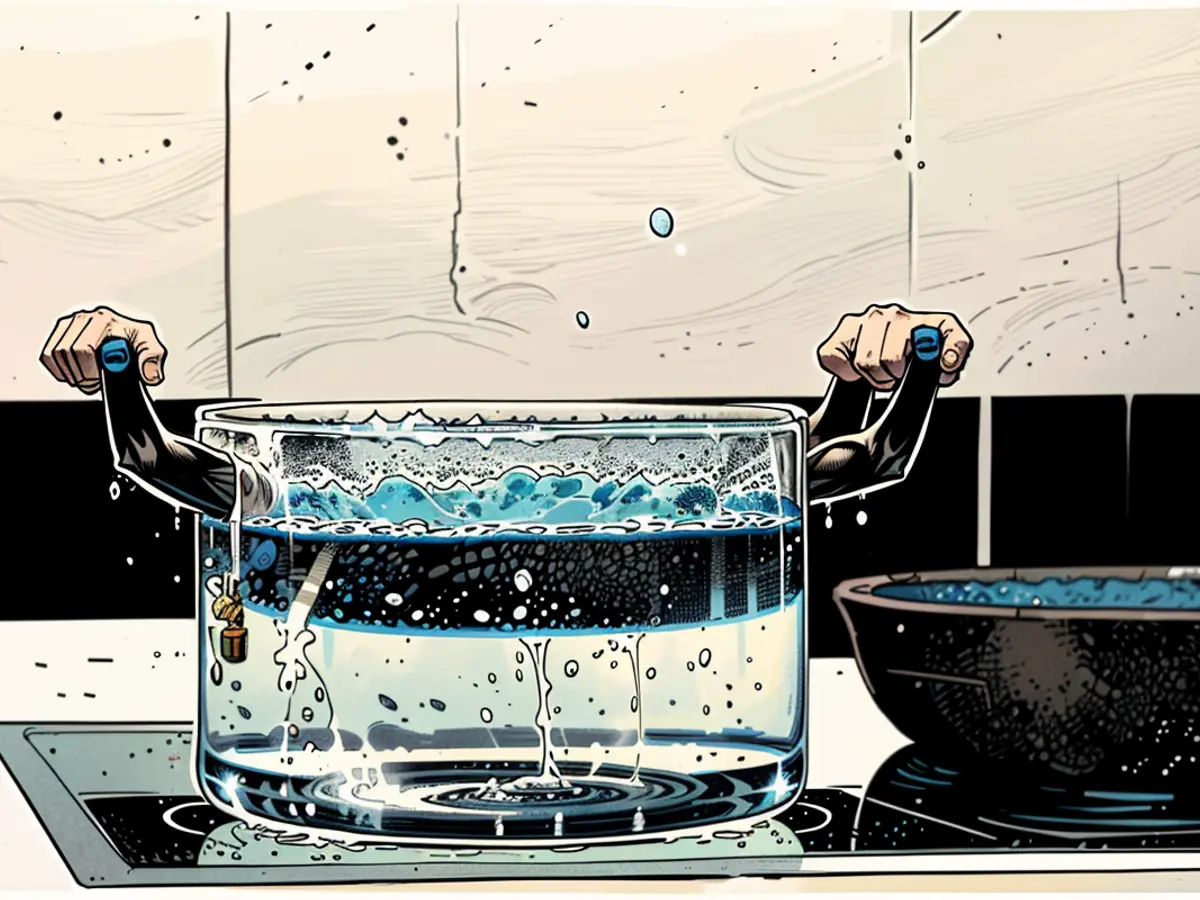Bad weather influences water boiling
Water boils not always at 100 degrees? Incorrect. Even a storm can influence the boiling point. This has consequences for the British, particularly during their Tea Time.
At home, making the perfect breakfast egg is always achievable, but during a vacation in the mountains, it remains runny despite equal cooking time? The blame for this misery lies in the changed air pressure at high altitudes. However, even those who prefer spending their summer by the beach are not immune to such mishaps. Researchers have discovered that bad weather also influences water boiling - and thus tea, egg, and spaghetti.
Important in the preparation of these foods is the boiling point. It is usually said: water boils at 100 degrees, so then from the liquid to the gaseous state transitions. However, this rule applies only under normal conditions at sea level, at 1013.25 hectopascals. In the mountains, water begins to boil faster, even at temperatures below 100 degrees. The rule of thumb says: For every 300 meters in altitude, the boiling point decreases by one degree.
Physics does not distinguish
Even low-pressure areas cause a changed air pressure. When the storm "Ciarán" passed over Great Britain in November 2023, Caleb Miller of the University of Reading's Meteorology Department quickly grabbed his measuring instruments. They were able to establish a direct link between the low pressure in the morning of November 2nd and the boiling temperature. In some cases, only 953.6 hectopascals were measured - and the water boiled below 98 degrees.
As the researchers describe in their study published in the journal "Weather," possibly millions of Britons could not have brewed their tea correctly that day. "This is due to the fact that tea is very sensitive to the temperature of the water used for preparation, which is related to the effectiveness of the extraction of tannins from the tea." For black tea, temperatures between 98 and 100 degrees are recommended. The breakfast tea of that day was therefore likely weaker for many people.
"How many Britons do I need my morning cup of tea," thought the main author Giles Harrison. "I know that the boiling point of water depends on air pressure, but I didn't expect a storm to bring the temperature of the brewing water outside the recommended range for making good tea."
You cannot cook an egg on Everest
Even those who wanted to cook a breakfast egg in the southern part of Great Britain at that time had to wait a few seconds longer than usual. The cooking time depends on the temperature. Water evaporates below 100 degrees at a lower pressure without getting any hotter. With such a reduced cooking temperature, it takes longer for the egg to set. Noodles also need more time.
By the way: On the highest mountain in the world, Mount Everest, you could no longer cook an egg, as geophysicist Roland Pail from TU Munich explains. "The yolk still jiggles, but the egg white sets only at 84 degrees." These temperatures would not be reached there - unless you carried a pressure cooker up. And even in a mountain hut in the Alps, the effects are relevant: "A normal egg takes 1.5 minutes to cook at sea level, but on a thousand meters in altitude, it already takes more than ten minutes."
In the realm of education, understanding the concept of air pressure and how it impacts boiling points can be beneficial for students learning Physics. This knowledge can help explain why eggs cook differently at high altitudes compared to sea level.
Despite the storm's disruption to their usual tea brewing, many Britons might not have realized that the lower pressure it brought led to water boiling below the recommended temperature for black tea, potentially affecting the strength of their morning beverage.







